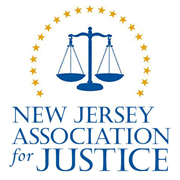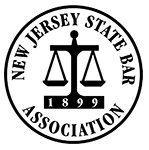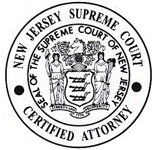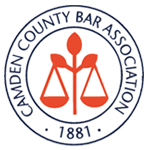The past two years have been challenging for everyone. Whether you have been affected personally or indirectly by the COVID-19 pandemic, no one has been left untouched.
Many companies decided to put profits over their worker’s health and safety. You may be aware of the negative coverage Tyson Foods received early on in the pandemic, as workers at several plants started testing positive and dying because their employer refused to put reasonable safety precautions in place. Whether your workplace is unsafe because of a lack of COVID-19 precautions or because your employer refuses to abide by safety standards, you may have legal options you can explore with a lawyer experienced in workers’ compensation.
COVID-19 and Your Workplace
Today, with vaccines widely available and free for anyone who wants them, workplaces and life in general can take a more normal approach. However, that does not mean your specific workplace is without dangers.
At the beginning of the pandemic, the focus was on health care workers and their safety. If they all got sick, there would not be anyone left to care for the rest of us; therefore, attention was rightly placed on those industries. However, as we look to return to a more normal environment, that approach has spread to other workplaces.
Whether you work in a meat packing plant, a grocery store, or any other workplace where you could be exposed to COVID-19 on a regular basis, you might be tempted to take legal action against your employer if they refuse to put in place any safety protocols. There are, however, legal hurdles you face when attempting to sue your employer.
Workers’ Compensation
With few exceptions, every employer in the United States must carry workers’ compensation insurance. This is no-fault insurance coverage, meaning that unless you intentionally injured yourself at work, if you get injured while on the job, you could be entitled to lost income and medical expenses from your employer’s workers’ compensation policy. Under most workers’ compensation policies, illnesses that you contracted at work are qualified injuries and would entitle you to benefits.
However, this can present numerous challenges because it can be nearly impossible to determine with absolute certainty where you were exposed to COVID-19. To get workers’ compensation benefits, you would need to show that you were exposed to and got sick from COVID-19 while at work. This could be extremely difficult.
Workers’ compensation is also the only monetary damages you can get against your employer, in most circumstances. You cannot sue your employer if you receive workers’ compensation benefits. However, there are some exceptions.
- If your employer does not carry workers’ compensation insurance and they are required to do so, you may be able to sue them.
- If you got sick because of your employer’s intentional wrongdoing, not just mere negligence, you may be able to sue them.
You can also bring a lawsuit against any third party. Therefore, if you were injured at work but your injury was caused by a third party, you can sue the third party to collect additional compensation.
When Workplaces Deliberately Ignore Reasonable Safety Measures?
Much like Tyson Foods employees, over the past two years, many employees have complained about their employer’s lack of safety measures to keep them safe at work and reduce their exposure to COVID-19. Some of the most common complaints include:
- Failing to provide employees with masks
- Failing to require customers wear masks
- Failing to adhere to social distancing protocols
- Refusal to properly sanitize work areas and common use areas
- Refusal to close when exposure risks are too great
These seem like reasonable measures to take during a global pandemic. However, many businesses made the decision to ignore safety measures, putting employees at risk. Now the question becomes whether you can sue your employer.
Generally, the answer as to whether you can sue your employer for an injury or illness you receive on the job is a hard no. However, New Jersey is one of several states that adhere to an intentional wrong exception. New Jersey law allows an employee to sue an employer for any behavior, act, or omission that is deemed to be an intentional wrong.
What does that mean? Courts have wavered on this for many years. You would think that not following safety guidelines would be an intentional wrong. However, part of proving an intentional wrong also means you need to prove that it was virtually certain that you would have been exposed to COVID-19 and become sick. New Jersey courts have settled on so-called substantial certainty language. Using this language, if your employer removed or refused to enact safety protocols and without those safety protocols, it is substantially certain that you would be exposed to and get sick from COVID-19, you may be able to sue your employer.
What to Do if You Are Concerned about Contracting COVID-19 at Work?
If you are required to go to work but you have legitimate concerns about getting COVID-19, you should first speak with your employer. Most employers are reasonable and will take reasonable precautions to keep employees safe and secure while working.
Make sure you are requesting reasonable changes. If your job requires you to interact in person with clients or customers, you may not be able to convince your employer to let you work from home. However, you may be able to compromise with your employer to require masks for staff and keep hand sanitizer readily available for staff and customers. Although not perfect, mitigation is better than no action.
If your employer refuses to take any action, you could consider filing a complaint with the Occupational Safety and Administration (OSHA). If your concerns are legitimate, OSHA will take action against your employer and require them to take certain steps to reduce the risk for everyone, including you.
Many employees shy away from filing an OSHA complaint for fear that their employer will find out they filed the complaint and fire them or reprimand them in some way. Know that federal law prohibits your employer from retaliating against you in any way for filing an OSHA complaint. They cannot fire you, discipline you, demote you, decrease your pay, or take any other adverse action against you because you filed a complaint.
If you are in imminent danger, which may be hard to prove as it relates to COVID-19 unless you can prove a colleague is at work, COVID-19 positive, and contagious, you can actually refuse to work. Your employer cannot terminate you if your refusal is legitimate. These are some extreme actions you may be able to take, depending on your exact situation. That is why your best course of action is to speak with an employment lawyer who can advise you about what you should do next and how you can take action against your employer to get them to take safety precautions seriously.
Cherry Hill Workers’ Compensation Lawyers at Pietras Saracino Smith & Meeks, LLP, Help Get Justice for Workers
Getting injured at work can be a difficult experience. If your employer is not following safety guidelines, you could have legal options to hold them accountable for their actions. The Cherry Hill workers’ compensation lawyers at Pietras Saracino Smith & Meeks, LLP, have the experience and tenacity you deserve. Call us today at 856-761-3773 or contact us online to schedule a free consultation. Located in Cherry Hill, New Jersey, we serve clients in Camden, Cinnaminson, Delran, Maple Shade, Pennsauken, and throughout South Jersey.







